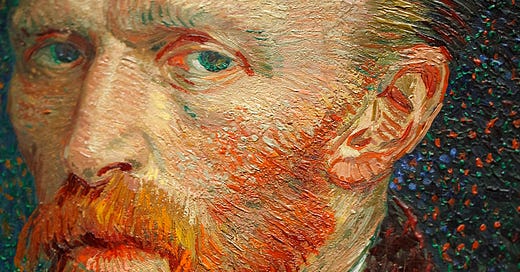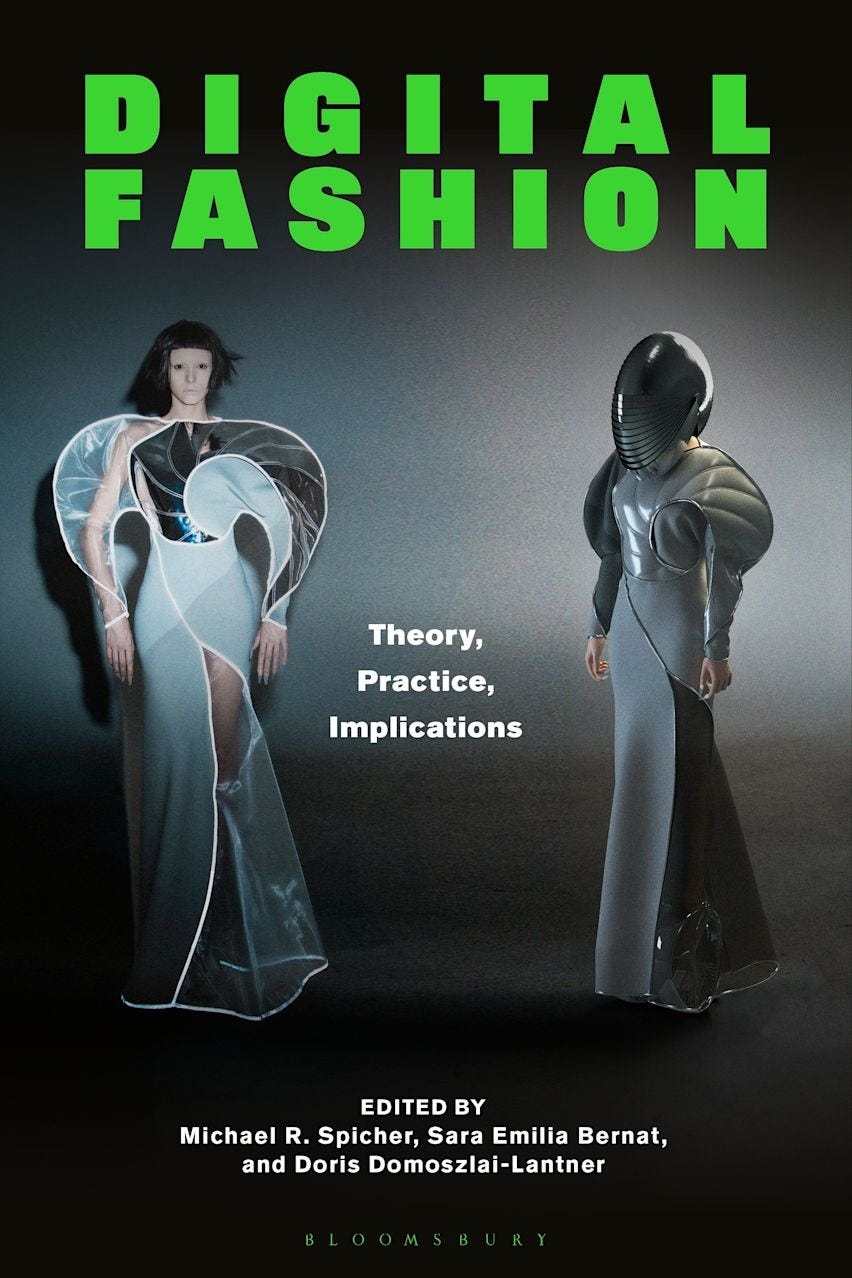Dear Aesthetics Advocates!
Existentialist thinking was born from controversy or struggle. Søren Kierkegaard challenged—well, everyone—but specifically the church in Copenhagen. Friedrich Nietzsche challenged the ingrained morality of Christianity. Many of the core existentialists lived through World War II—Jean-Paul Sartre, Simone de Beauvoir, Albert Camus, and others. In fact, Sartre was captured and held as a prisoner of war for about nine months.
With all that, we might imagine that their philosophical focus would subsist exclusively on political ideas. While there’s some truth to that, one thing that connects many of these philosophers is human choice. Sartre and others emphasized that we are not just shaped by circumstances—we actively shape our own existence. This is where art and aesthetics enter the picture: if we must create meaning in our lives, why not approach it as an artist shaping a masterpiece? This idea, explored by thinkers like Nietzsche and more recently Jennifer Gosetti-Ferencei, suggests that life itself can be seen as a work of art.
Sartre talks about each person being responsible for their own actions. He boldly declares: “man is condemned to be free: condemned, because he did not create himself, yet nonetheless free, because once cast into the world, he is responsible for everything he does.” The use of the harsh imagery of being condemned might sound negative. However, Sartre claims that’s not what he intends, as he means to focus on human responsibility and possibility. When discussing critics of existentialism, he writes: “what people reproach us for is not essentially our pessimism, but the sternness of our optimism.”
“In life, a man commits himself and draws his own portrait, outside of which there is nothing.”
Jean-Paul Sartre, Existentialism is a Humanism
Life as a Work of Art
The last chapter of Jennifer Gosetti-Ferencei’s book, On Being and Becoming: An Existentialist Approach to Life, is called “Life as a Work of Art.” While some version of this idea may almost feel like a cliché, for these philosophers, it is grounded in human freedom and choice. “Creativity may be required to become who we are, as Nietzsche wrote, or who we may want to be.” We are always in process of becoming, until we are no more.
While saying our life is a work of art sounds like a pleasant sentiment, we often take the warm feeling and leave it at that. To try to give this idea more weight than a mere platitude, I asked my art students to name some “principles” of art-making. They shouted out some things that I wrote on the whiteboard. Here are four of them: contrast, balance, timing, and composition. Then, we discussed how these ideas might apply to our lives, if we view our lives as a work of art.
Contrast. Francis Hutcheson said that beauty is “uniformity amidst variety.” Although Hutcheson was referring to beauty, the principle of uniformity amidst variety applies equally to art and life. We develop habits that bring consistency to our lives, and this is a good thing. But too much uniformity can dull our senses, imagination, creativity, and intellect. It is beneficial to create some contrasts, at least occasionally.
Balance. Admittedly, this one can be tricky, depending on what we mean. Some people say that those who accomplish great things do not have a balanced life. They had to maintain intense focus to perform. While this is true, this doesn’t mean that they perform 24/7. Some amount of balance seems necessary to flourish.
Timing. In music and plays, timing can be crucial to create the right effect. Our lives can often depend on timing, which sometimes happens by chance. But keeping ourselves open to different experiences and meeting new people can often create the right timing.
Composition. Look at your life as a whole, what do you see? What’s missing? What did you do well? Where do you need some improvement? When we focus on a specific moment, it is easy to view ourselves one way only, but our lives are a long process of continuous becoming. Asking these questions can help you move forward in ways that create a beautiful composition.
Conclusion
These four ideas are not meant to be decisive, and you may even interpret them differently. That’s all fine. This is a subjective approach to thinking about your life. I recently read an interview with actor Terry Crews. When asked about something a parent figure taught him to appreciate, Crews said that his mother always told him, “Terry, never forget you're an artist. Number one. Before everything, you're an artist.” So, I want to pass that along to you as well.
You might be thinking that you’re not an artist. However, recall the Sartre quote from above, we draw our own portraits throughout our lives. Maybe you don’t paint, play music, write, or act. But your life is your work of art. This is not merely a nice phrase for the existentialist philosophers. It has real value as we make intentional choices to guide our paths through life. It is easy to fall into habits and just go through the motions, but we need to remember that life is an activity of becoming, not a passive state of remaining. You don’t have to conceive of every detail as we don’t know what the future holds. You can begin small. What will your next brushstroke be?
** I still have some availability for the spring and am booking for the summer, if you’re interested in having me speak or deliver a workshop. Email at michaelrspicher@gmail.com
Relevant ARL Articles
Sublimity as a Symbol of Moral Dignity
Emily Brady's The Sublime in Modern Philosophy
The Sublime Spectacle of the Coronavirus Curve
ARL News
I spoke with Jessica Quillin about luxury and aesthetic experiences on the Fashion Strategy Weekly podcast, aired January 14, 2025.
I spoke with Tony Martignetti on his podcast The Virtual Campfire, which aired on January 6, 2025. We talked about how aesthetics transforms our lives.
Digital Fashion: Theory, Practice, Implications, edited by Michael R. Spicher, Sara Emilia Bernat, and Doris Domoszlai-Lantner, is available for purchase! (Our book was recently featured in a BeautyMatter article.)






I'm certainly sympathetic to this idea of looking at and making choices about our lives as if they were analogous to works of art. For me, though, the notion of striving to make it like a masterpiece is rather unattractive. I'm cool with making my life a good and interesting work, but not with setting up that kind of standard
Michael, this essay captures what I have endeavored to share with my students over the years. Beautifully crafted!